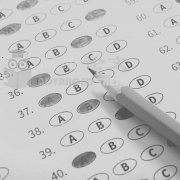美国代写论文:电子废弃物
美国代写论文:电子废弃物
观察结果表明,包含有毒元素的电冰箱,空调,烤箱,冰柜,微波炉等家用电器(纽约州,2015)等禁止回收利用,危险气体会造成更严重的后果。当我粗略猜测的时候,我并不知道“电子设备回收和再利用法”中签署的电子法所涵盖的设备。
实验室评估III帮助澄清了许多混乱并清除了我的想法。就像在进行ENSC199演讲之前,我意识到了电子垃圾的危害,但并不关心处理法律。已经完成生命阶段的旧电子元器件现在大部分已经被废弃,被当作垃圾,有的被转售。
在进行这个讲座之前,我对电子垃圾的兴趣和关注很少,因为我没有足够的知识。现在通过了解电子垃圾的重要性,我了解了电子垃圾的重要性和回收的重要性,所以在这方面我是中等的。
现在我会尽我所能,按照我个人的电子废物回收计划,因为电子废物对人和气氛来说是非常危险的,如果不加以理性的处理的话。
电子废物的倾倒是一个不断演变的普遍的生态和公共卫生问题,因为这种废物已经发展成为地球上适当的公共废物流中最快速增长的部分。电子废弃物或废弃电子电气设备(WEEE)大致被扔掉(kishore,j&Monika,2010),额外的,过时的,损坏的电气或电子设备。这个问题需要紧急关注,以防止危害环境。
美国代写论文:电子废弃物
The results from the observations suggest that very electronic appliances like refrigerator, air conditioner, oven, freezer, microwave oven and other appliances (New York State, 2015) which contains toxic element are prohibited to recycle as the dangerous gases can cause worse effects. When I made a rough guess, I was not aware of the equipment covered by electronic law signed in State Electronic Equipment Recycling and Reuse Act.
The lab assessment III helped to clear many confusions and cleared my ideas. Like Before conducting the exercise of lecture ENSC199, I was aware of e-waste hazards but not about disposal laws. The old electronic components which had completed their life stage are mostly now discarded and used as a trash and some are resold.
Before taking this lecture I was rarely interest and concerned about e-waste as I did not have the sufficient knowledge. Now by gaining knowledge regarding the importance of e-waste, I have come to know the importance of e-waste and it’s recycling so, I am moderately concerned in this regard.
Now I would try my best to follow my personal plan for e-waste recycle because e-waste is really dangerous for people and the atmosphere if not reprocessed sensibly.
Dumping of e-waste is an evolving universal ecological and public health matter, as this waste has develop into the most fast growing section of the proper public waste stream on the earth. E-waste or Waste Electrical and Electronic Equipment (WEEE) are roughly thrown away (kishore, j & Monika, 2010), extra, obsolete, damaged, electrical or electronic devices. This issue needs urgent attention to be paid off for the prevention of hazardous environment.








